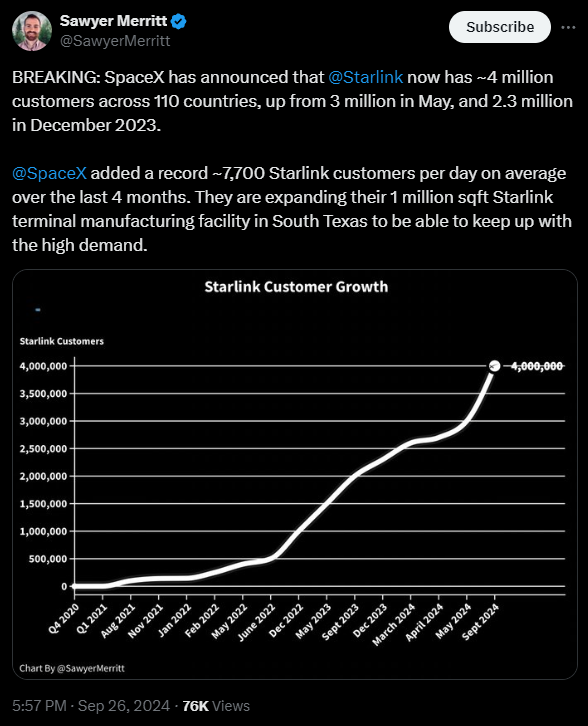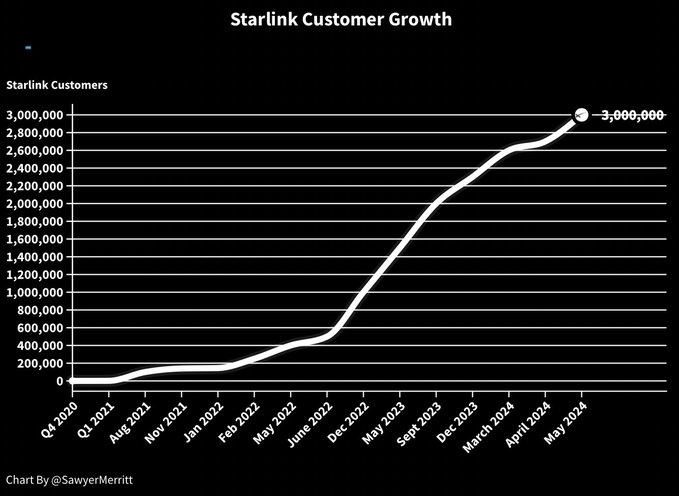🏅 Top traders
| # | Trader | Total profit |
|---|---|---|
| 1 | Ṁ6,181 | |
| 2 | Ṁ3,693 | |
| 3 | Ṁ510 | |
| 4 | Ṁ155 | |
| 5 | Ṁ155 |
People are also trading
@mods creator is inactive resolves as no - https://driveteslacanada.ca/news/starlink-adds-1-million-users-in-just-47-days-reaching-9-million-subscribers/. About 1M short.
Will cellphone subscribers count ? Internet and voice? They will offer direct to cellphone internet
Subscriber growth has been fairly linear for the last 1.5 years, tracking towards a bit under 5 million at the end of 2025. https://en.wikipedia.org/wiki/Starlink#Subscribers
Larger increases could come from opening in new areas, and increasing launched bandwidth. I don't think it will be enough, but I'm not totally sure. I'd guess the biggest markets that might come online by then are in South and Southeast Asia, but I don't have a good idea of how likely approvals are there or how big the impact will be. The v2 mini satellites seem to have more bandwidth per launch, but not radically more. V2 sats on Starship would have several times as much bandwidth per launch as Falcon 9 with v2 mini, but I don't anticipate all that many Starship launches by the end of 2025.
@notarealuser in point 1, the graph you show is still trending towards 5 million at resolve time.
Point 2 is something I hadn't considered, but I don't think there's a very good chance that people will directly sign up for Starlink direct to cell. Instead it seems they are partnering with T-Mobile to provide it, so users will be T-Mobile customers and not Starlink customers.
@TimDuffy True. But, D2C will not remain in US alone, if proven sufficiently viable. It will in fact be more useful in geographically challenging areas for cell service like Indonesia(population 275 mil).
@notarealuser I expect Direct to Cell to be bundled in other countries as well, due to the low bandwidth for now, though possible I am mistaken on this.

